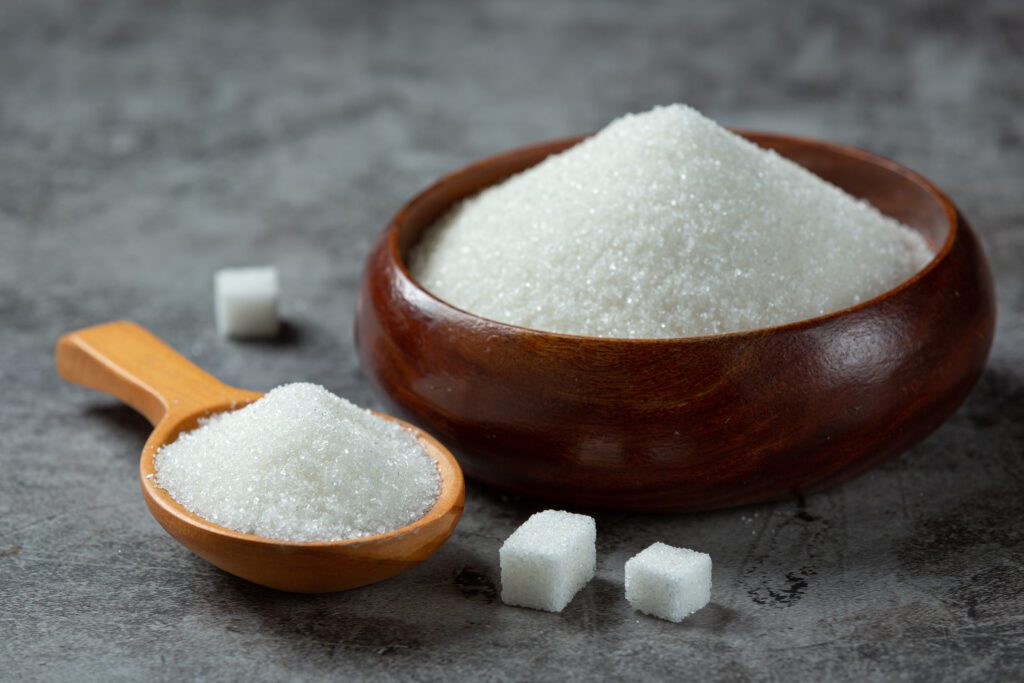
Your health may be significantly impacted by sugar, especially if you consume it in large quantities. Although sugar is a naturally occurring substance in many meals, including fruits and dairy products, it is frequently added to processed foods and beverages in order to improve flavor. Below is the details what is the impact of sugar in your health.
Impact of sugar in your health.
The following are some ways that consuming too much sugar can harm your health:
1. Obesity and weight increase: A high sugar diet is significantly associated with weight gain and obesity. Sugary meals and drinks are frequently high in calories and can help people consume too many calories. Furthermore, consuming a lot of sugar may enhance cravings and a person’s propensity to overeat. Obesity and weight increase can be beigest impact of sugar.
2. Increased risk of chronic diseases: Research has linked excessive sugar consumption to a higher risk of a number of chronic conditions. These include non-alcoholic fatty liver disease, type 2 diabetes, heart disease, and specific forms of cancer.
A high-sugar diet can raise the risk of these illnesses by causing insulin resistance, inflammation, and dyslipidemia. You can save yourself by minimizing the sugar, so impact of sugar will be the less.
3. Dental issues: Beigest impact of sugar is tooth decay. tooth decay and cavities are two dental issues that sugar can significantly contribute to. The bacteria in your mouth make acids when you ingest sugary foods or beverages, which can erode tooth enamel and cause cavities.
To keep your teeth healthy, practice proper oral hygiene, which includes brushing and flossing on a regular basis.
4. Deficits in vital nutrients: Foods high in added sugars are frequently poor in these nutrients. Excessive sugar intake might replace more nutrient-dense items in your diet, perhaps resulting in dietary shortages. Given that children and adolescents have greater nutritional needs throughout growth and development, this is especially concerning for these age groups.
5. Foods heavy in refined sugars can trigger abrupt blood sugar increases followed by drops, which can lead to energy slumps and mood fluctuations. Energy crashes, exhaustion, and mood fluctuations may result from this. Although sugar can give you a short-lived energy boost, the subsequent crash can make you feel drained and agitated.
6. Increased risk of addiction: According to some studies, sugar can have addictive qualities and open up the brain’s reward centers. This might result in sugar cravings and make it difficult to limit intake, which are behaviors seen in substance abuse.
How to Reduce Sugar Intake?
Sugar consumption should be decreased as a first step to better health. Here are some tips to assist you in cutting back on your sugar intake. To save yourself from impact of sugar below is some tips.
1. Consult food labels: Pay close attention to the food packaging’s ingredient list. Numerous terms, including sucrose, high fructose corn syrup, maltose, dextrose, and others, can be used to refer to sugar. Recognize sugar’s several names to find hidden sources in processed meals.
2. Select entire foods: Whenever feasible, choose whole, unadulterated foods. In general, foods like fruits, vegetables, whole grains, lean proteins, and healthy fats have less added sugar and offer vital nutrients. Make an effort to prepare meals and snacks using these genuine food sources.
3. Limit sugary drinks: Sugary drinks are a key source of added sugar in the diet, including soda, fruit juices, energy drinks, and sweetened coffee and tea. Replace these drinks with water, unsweetened tea, or water that has been flavored with fresh fruit.
4. Cook at home: You can choose the ingredients you use when you prepare food at home, it will save you from impact of sugar. Recipes can be modified to use less sugar, or you can experiment with other sweeteners like stevia, erythritol, or monk fruit extract.
Try different combinations of herbs, spices, and natural flavorings to improve the flavor of your food without using extra sugar.
5. Keep in mind that many sauces and condiments, including ketchup, barbecue sauce, salad dressings, and marinades, include additional sugars. Read the labels and select products that are low in sugar or sugar-free, or prepare your own at home using better ingredients. It will minimize the impact of sugar in your body.
6. Limit processed snacks and desserts: Added sugars are frequently found in processed snacks such cookies, cakes, candies, and sugary cereals. Choose healthier substitutes instead, such as homemade snacks with little to no added sugar, fresh fruits, nuts, and seeds. It will reduce impact of sugar.
7. Reduce the amount of sugar you use in your recipes gradually. This applies to both baking and cooking. Your taste buds will eventually become accustomed to less sweetness.
8. Practice portion control: Use moderation when eating anything, even items that naturally contain sugar, like fruits. Despite the fact that they include healthy nutrients, they nevertheless add to your daily sugar intake.
Consider your portion sizes and include a variety of items in your diet to maintain balance. It will help to watch and you can save yourself from impact of sugar..
9. Seek assistance: If cutting back on your sugar intake is difficult for you, think about getting assistance from a licensed dietitian or nutritionist. They can offer direction, personalized food plans, and useful ideas to assist you in achieving your objectives.
Remember, it’s not about completely eliminating sugar from your diet, but rather reducing excessive consumption and making healthier choices overall.
Gradual changes and mindful eating habits are key to successfully reducing your sugar intake and maintaining a balanced and nutritious diet.
One thought on “The Impact of Sugar on Your Health”